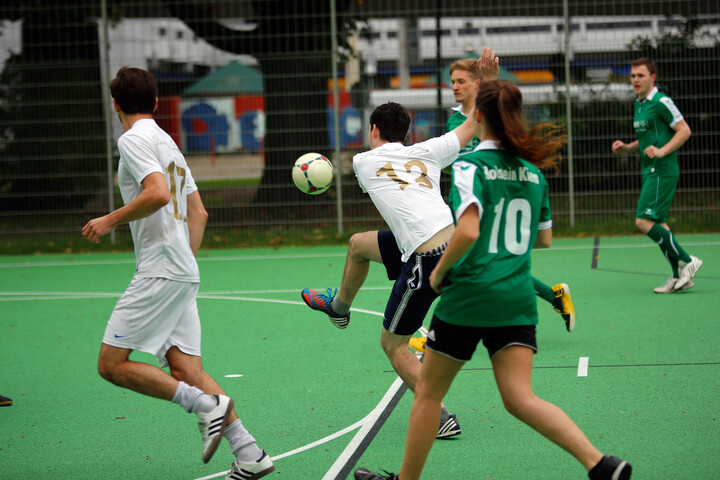Master of Comparative Business Law
The program aims to train students in both comparative and business law, offering them a competitive edge in their careers as strategic decision-makers in both the public and the private sector. It offers a unique combination of traditional comparative law studies (legal methodology, legal traditions, and the common/
Furthermore, it provides general and specific knowledge of the European Union legal framework and of the actors in international trade law.
The program addresses in particular the practical problems resulting from the co-existence of business law at different levels, i.e. the regional business law of the European Union and its respective Member States with the global (or near-global) trade law of the World Trade Organization.
The admission period starts on 20 April and ends on 31 May 2021. The application process is now completely digital.
What does the M.C.B.L. offer?
Who can apply?
Students who have obtained a four-year degree (minimum 240 ECTS credit points or equivalent) in law, from a German or equivalent foreign university. Graduates in Economics, Social and Political Sciences or similar fields are also eligible, if they have accumulated at least 20 ECTS credit points (or equivalent) from law courses or can otherwise proof their ability to study law.
What makes the University of Mannheim so special?
The university's profile is shaped by its unique blend of renowned business, economic, and social sciences that are linked to excellent humanities, law studies, mathematics, and informatics in a number of interdisciplinary programs and research projects. The schools and research institutions of the university closely collaborate with numerous national and international partners such as the Centre for European Economic Research (ZEW) or the Mannheim Centre for European Social Research (MZES).
The University of Mannheim offers various bachelor's and master's programs, as well as programs that conclude with a state examination. Among these are unique interdisciplinary programs, such as the bachelor's program in Culture and Economy and the integrated program in Law. The Graduate School of Economic and Social Sciences and the graduate program “Formations of the Global” have a portfolio of internationally recognized doctoral programs. Within the Mannheim Business School (MBS), the university focuses on training future executives. The MBA programs offered by the Mannheim Business School rank among the top 25 worldwide. You can find information for degree-seeking students here (PDF).
Staff members at six schools and departments teach and carry out research in Business Administration, Economics, the Humanities, Social Sciences, Law, and Business Informatics and Mathematics. Researchers at the university collaborate with numerous national and international partners.
The University of Mannheim is considered one of the most beautiful universities in Germany. It is located in the baroque palace in the heart of Mannheim and all buildings can be reached by foot within a short time.
Which courses can I take in Mannheim?
Course content
The program consists of compulsory, intensive and elective modules. The content of the modules has been chosen carefully. The modules are composed in an order, which ensures the ideal development of both academic and professional competences.
The compulsory modules have a clearly defined focus on comparative legal methodology and the legal sources, actors and means of action. Whereas these subjects of European and International Law are indispensable for business lawyers and thus mandatory, students can also form the program to fit their own interests by choosing from a wide variety of courses which are offered in the intensive and elective modules. These modules cover all main subjects of business law, thus enabling students to gain a depth of study. Moreover, these modules contribute to the coherence of the competences obtained. The program pays specific attention to professional applications, particularly through its teaching methods and assignments. To serve this purpose, the program focuses on a combination of legal theory as well as thorough study and analysis of cases and thus takes advantage of an outstanding and well-developed characteristic feature of German legal education.
Program structure
All students have to complete a total of 12 courses (20 ECTS per semester) and are required to pass an examination at the end of each course. With regard to intensive and elective modules, students are expected to participate actively in the courses and they are required to prepare oral and written presentations. In addition, a master’s thesis (20 ECTS) on a topic of choice is required.
Fall-Winter Term: European Comparative & Business Law
Compulsory Module: Introduction to Comparative European Law
(all students participate in all of these courses)
Intensive Module: The Internal Market
(students may choose 2 of the following courses)
Elective Module: European Business Law
(students may choose 1 of the following courses)
Comparative Law I (European Legal Traditions)
European Market Freedoms
EU Business Law Special Topic 1
Introduction to European Business Law
European Competition Law
EU Business Law Special Topic 2
European Union Law – Institutional Aspects
European Private Law
EU Business Law Special Topic 3
International Arbitration EU Business Law Special Topic 4
Spring-Summer-Term: International Comparative & Business Law: International & Comparative Business Law
Compulsory Module:
Introduction to Comparative and International Business Law
(all students participate in all of these courses)
Intensive Module:
The Global Market
(students may choose 2 of the following courses)
Elective Module:
International Business Law
(students may choose 1 of the following courses)
Comparative Law II (The Common/
Civil Law Divide) International Trade Law
International Business Law Special Topic 1
Introduction to International Business Law
Corporate Governance II
International Business Law Special Topic 2 Law & Economics
International Sale of Goods
International Business Law Special Topic 3 Private International Law
International Business Law Special Topic 4 International Organizations: a structural introduction
International Business Law Special Topic 5 Information on the examination regulations for the M.C.B.L. can be found here.
For a German version, please click here.
Find out more about student life at the University of Mannheim
What does student life in Mannheim look like?
Housing
The Studierendenwerk Mannheim (an organization responsible for all social aspects of studying) runs a number of university-owned dormitories within Mannheim, most of them located in close proximity to the university. Applications for these dormitories usually outnumber the places offered. However, each year the International Office reserves a certain number of places in these dormitories. For students taking part in the M.C.B.L. program, the International Office has agreed to reserve up to ten places in student housing each year. Early application is recommended. Apart from that, the Studierendenwerk also has a private room location service.
Mensa
Students can eat inexpensively in the university's Mensa (dining hall) and cafeterias, which are also run by the Studierendenwerk. The Mensa offers a selection of different set meals for lunch every day of the week; the cafeterias offer additional meals and snacks. The central EO cafeteria also offers dinner during the semester.
Enrollment
Enrollment for the M.C.B.L. program is organized by the International Office (in German: Akademisches Auslandsamt) in close cooperation with the Department of Law and the Studierendenwerk.
Services
The Studierendenwerk runs a child care center and a nursery, as well as a psychological counselling service and a legal counselling service. Further services include the provision of casualty insurance and international student identity cards.
Student organizations
Campus life at the University of Mannheim is marked by the students' active participation in numerous university organizations and clubs. The official student organization established by the University Charter is the AStA (general student committee), which represents students' interests towards the President's Office and the university administration.
Studierendenwerk
Campus life at the University of Mannheim is marked by the students' active participation in numerous university organizations and clubs. The official student organization established by the University Charter is the AStA (general student committee), which represents students' interests towards the President's Office and the university administration.
Institute of Sports
This organization meets the recreational needs of Mannheim's students. Every week, thousands of students participate in sports courses offered by the Institute. Whether you prefer working out in the gym, participating in competitive sports, or practicing relaxation techniques or meditation, the Institute of Sports offers expert coaching in a wide range of activities.
Transportation
Once enrolled in the M.C.B.L. program in Mannheim, students can buy a reasonably priced 'student's ticket' upon showing their student identity card, which allows them to use public transport all over the region for the entire semester.




